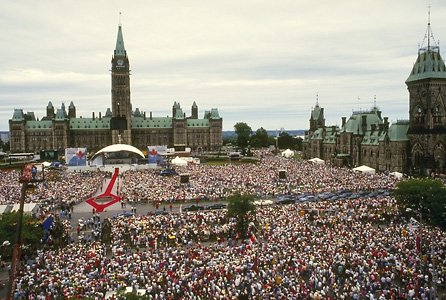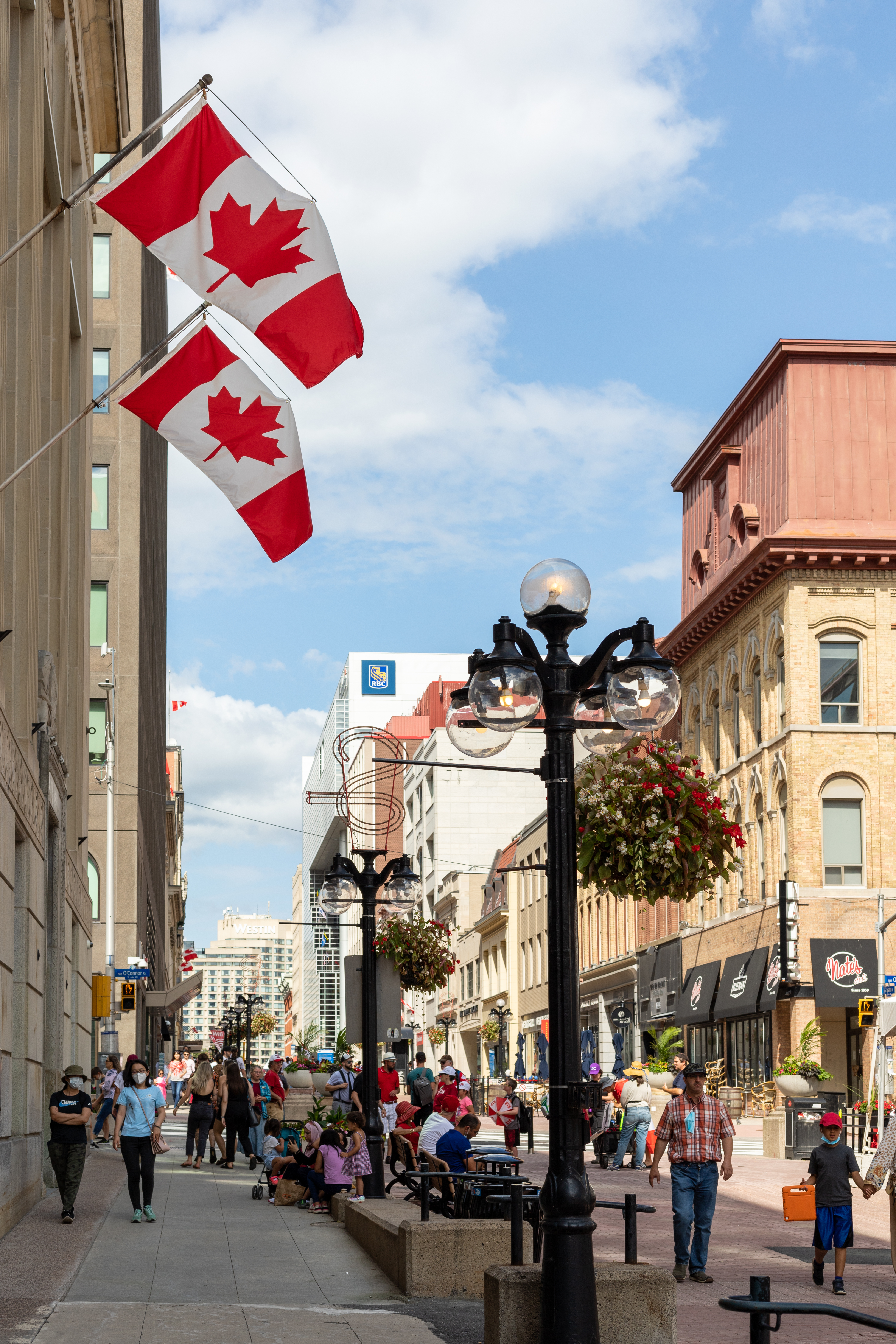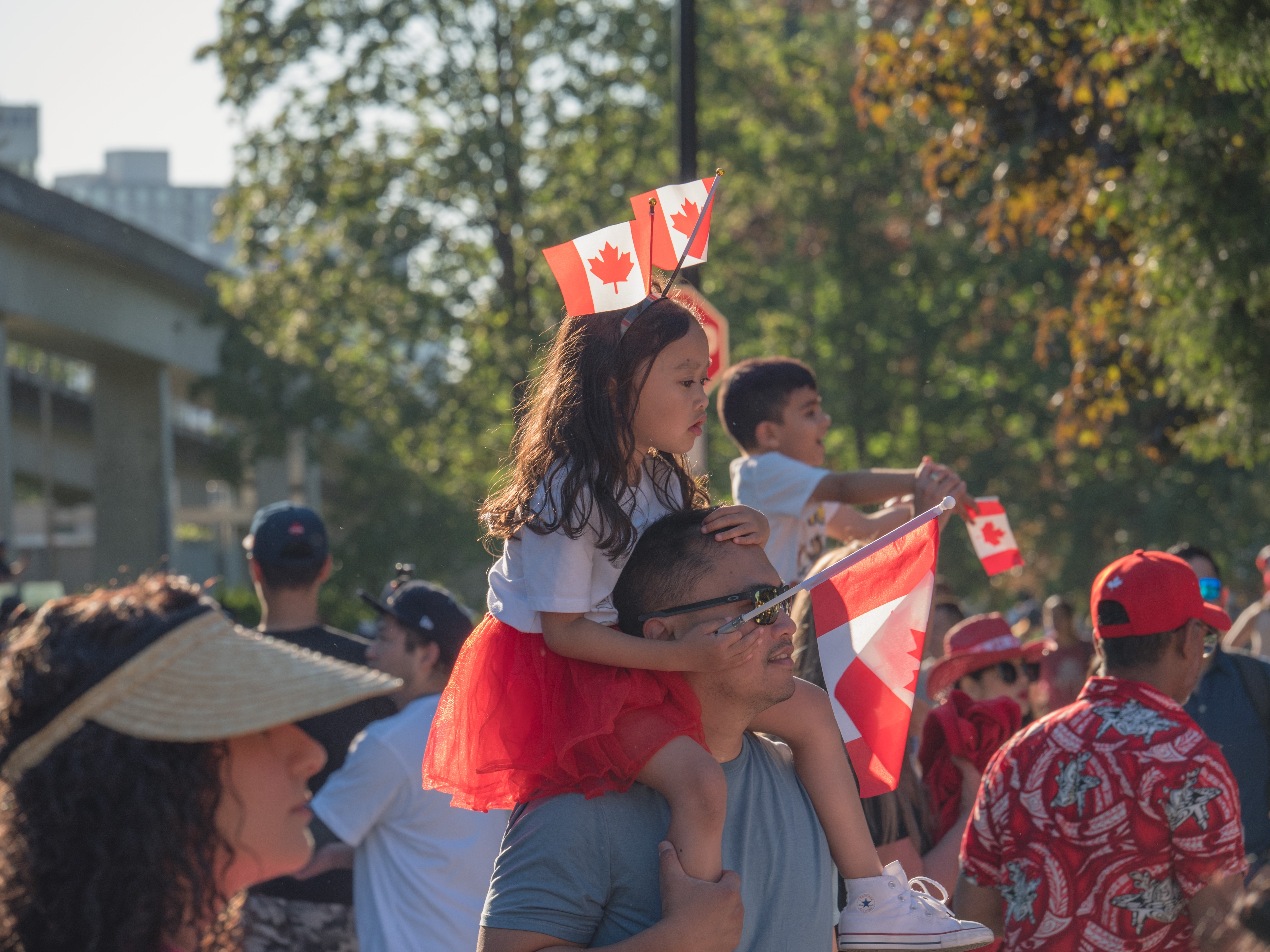Canada Day is one of Canada’s most important national holidays. It is celebrated on July 1 of each year. The holiday honors the day that the British colonies of New Brunswick, Nova Scotia, and the Province of Canada were united in one country. The new country, called the Dominion of Canada, was born when the terms of the British North America Act went into effect on July 1, 1867. The act created a federation of four provinces under a central Canadian government, which existed within the British Empire. The original four provinces were New Brunswick, Nova Scotia, Ontario, and Quebec—with Ontario and Quebec formed from the Province of Canada. Canada later gained additional lands. Today, Canada is a fully independent nation consisting of 10 provinces and 3 territories.
Canada Day was called Dominion Day until 1982, when the Canadian government renamed it. The holiday is a time for patriotic programs and events. In 2017, Canadians celebrated the sesquicentennial (150th anniversary) of the formation of the Dominion of Canada. The four official themes of the nation’s 150th anniversary celebration were diversity and inclusion, reconciliation with Indigenous (native) peoples, young people, and the environment.
On Canada Day, some communities hold alternative events to acknowledge or reflect upon the ways in which European colonization has affected Indigenous peoples in Canada. Such events may focus on mourning harm done, honoring Indigenous peoples, or furthering reconciliation between settler and Indigenous cultures.



